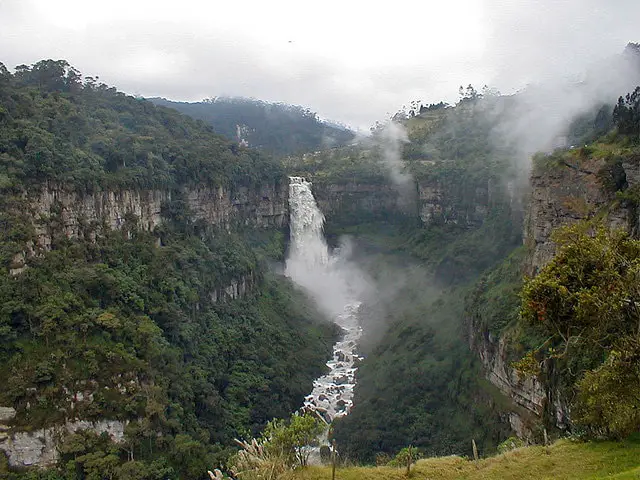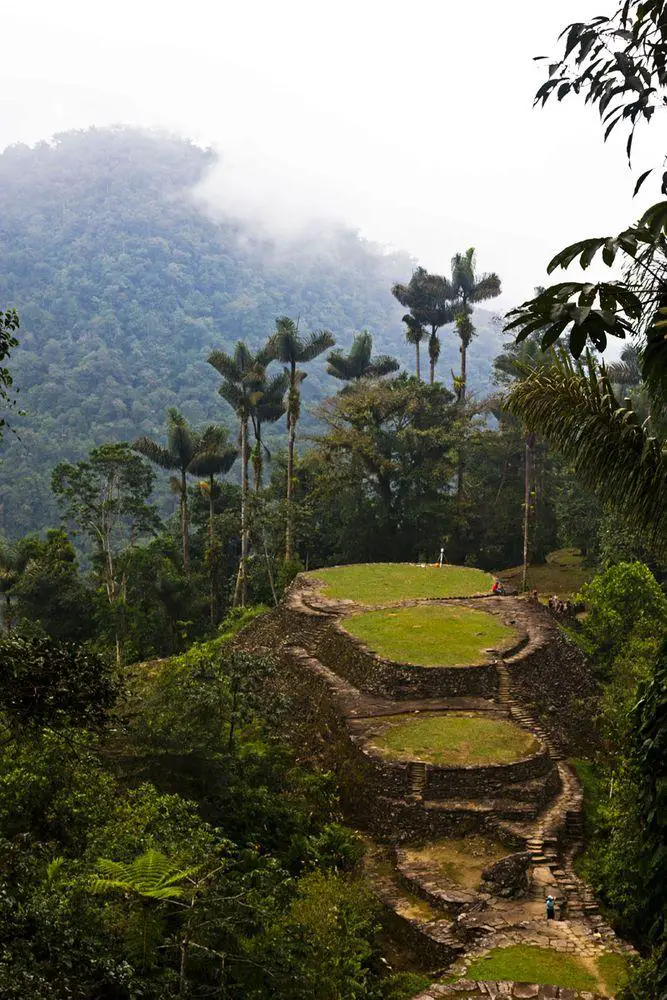Wondermondo 🢖 World 🢖 Wonders of South America 🢖 Wonders of Colombia
Territory
Wonders of Colombia
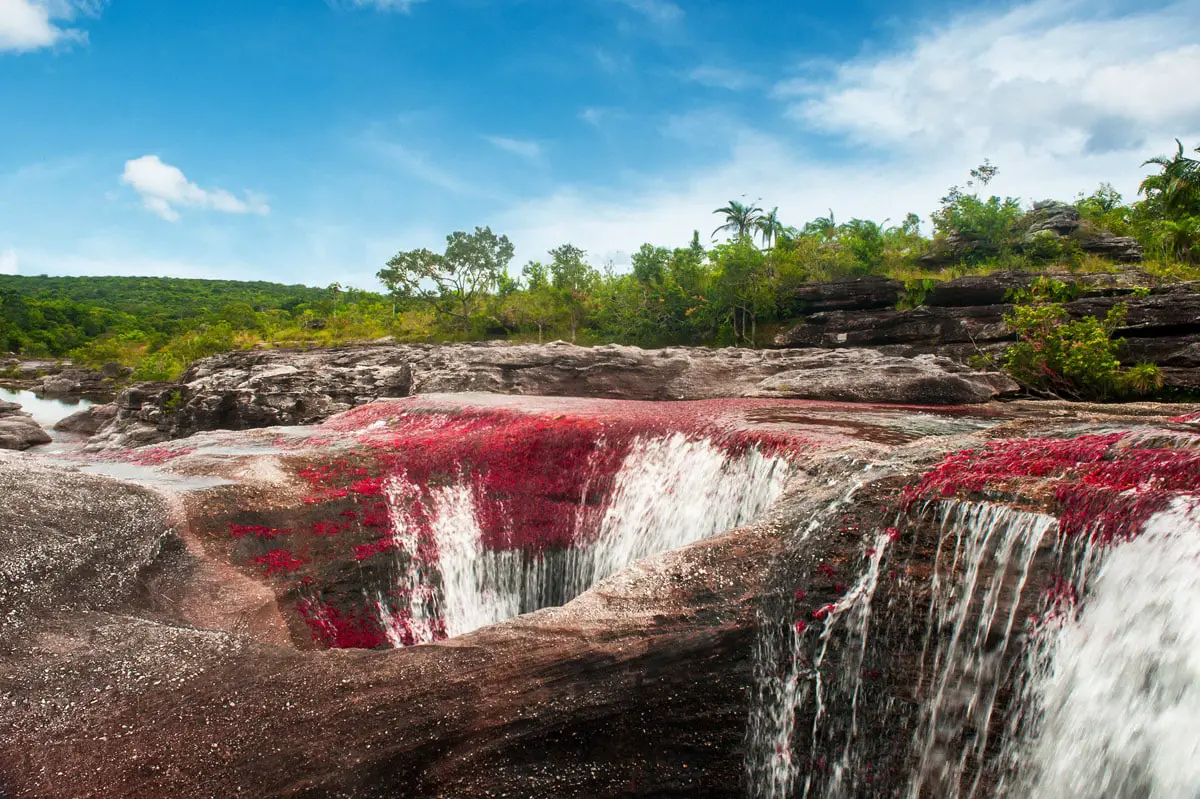
 Highlights
Highlights
This enormous and extremely diverse country has many spectacular landmarks. Many Colombian attractions are little known and even not named – there are many wilderness areas still waiting for explorers.
The highlights of Colombia are:
- Spectacular tablelands and remote mountain chains with countless waterfalls, numerous undiscovered species of plants and animals, and archaeological monuments. Several tablelands are comparable to the famous Venezuelan tepuis but seem to be even richer with endemic species of plants and animals. Most exotic could be Sierra de la Macarena (here is very special landmark – Caño Cristales) and the remote Chiribiquete tepuis. It is possible that in the past these remote areas saw the development of some of the earliest cultures in South America.
- Archaeological heritage – abandoned settlements, megaliths and petroglyphs. The myth of El Dorado was created by the traditions in Muisca Confederation – but besides this Colombia has many other amazing, somewhat mysterious archaeological monuments.
- Historical cities with colonial architecture. Colombia has some of the oldest European built cities and towns in the Americas, cities are rich with beautiful Late Renaissance and Baroque architecture.
Map with the described wonders
If you see this after your page is loaded completely, leafletJS files are missing.
 Top 25 wonders of Colombia
Top 25 wonders of Colombia
Geological wonders
Los Estoraques
Norte de Santander
Amazing cliff formations – hundreds of tall stacks of eroded rocks. Rich archaeological finds of an unknown culture.
El Totumo
Bolívar
15 m tall, conical mud volcano with warm mud pool in the crater.
Araracuara Canyon
Caquetá
Some 6 km long, spectacular canyon of Rio Caquetá in the pristine Amazonian selva. This canyon has up to 80 m tall, vertical walls, and there are numerous impressive sights.
Tequendama Falls
Cundinamarca
The most impressive waterfall in Colombia. Water has a 130 – 160 m tall, almost uninterrupted plunge into an impressive canyon.
Raudal de Jirijirimo
Vaupés
Gorgeous waterfall in the pristine selva, formed on Apaporis River. The total height of the falls is some 60 m, width – more than 200 m. After the falls river enters a spectacular canyon, where the walls above the river even are meeting, forming a natural bridge with a tropical forest on it.
Cerros de Mavicure
Guainía
Giant cone-shaped monoliths, rising at both banks of the Inírida River. The tallest rises some 380 m tall.
Biological wonders
Caño Cristales
Meta
A unique river. Its bottom is covered with the endemic Macarenia clavigera plants. From late July to November, these plants turn bright red. Then this colorful river is one of the most spectacular sights in Colombia.
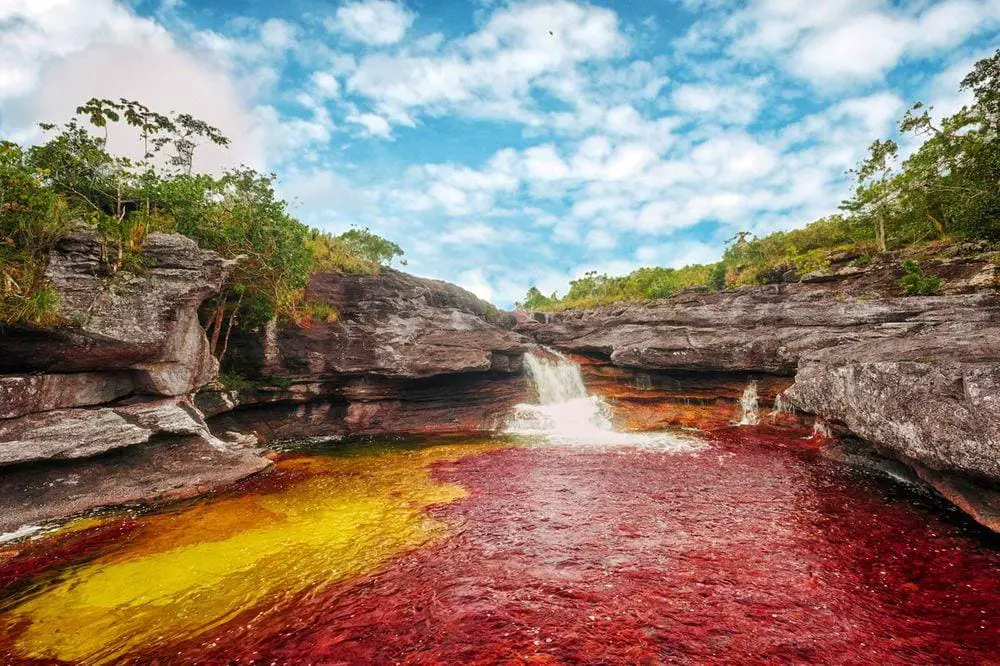
Sumapaz Páramo
Cundinamarca
The largest paramo – Andean highland moor – in the world. Numerous endemic species including up to 12 m high Espeletia plants.
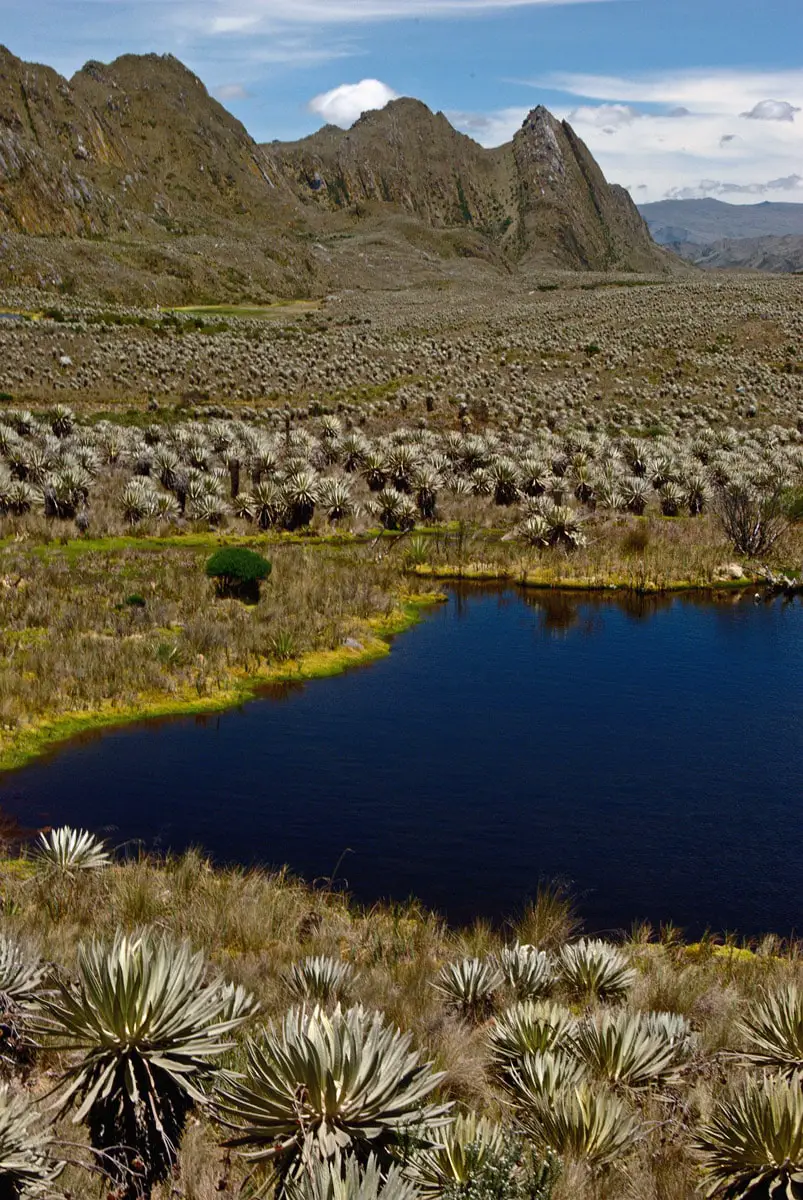
Páramo de Chingaza
Meta, Cundinamarca
Highland moor with unique species of plants and animals. Spectacular are the fields of fraleijones (Espeletia).
Malpelo shark population
Cauca
In the waters around the remote Malpelo Island live thousands of sharks. Here often can be observed hundreds of hammerhead sharks and many rare species of sharks. On the small island live 40 000 masked boobies (Sula dactylatra) – the largest colony in the world.
Wax palms of Cocora Valley
Cauca
The highest palms (Ceroxylon quindiuense) in the world. Although the measured height is 43 meters, it is told that these extremely slender palms can reach a height of 60 m, some sources mention even 80 m! This palm grows in mountains up to 3,500 m high – this also is a record for palms.
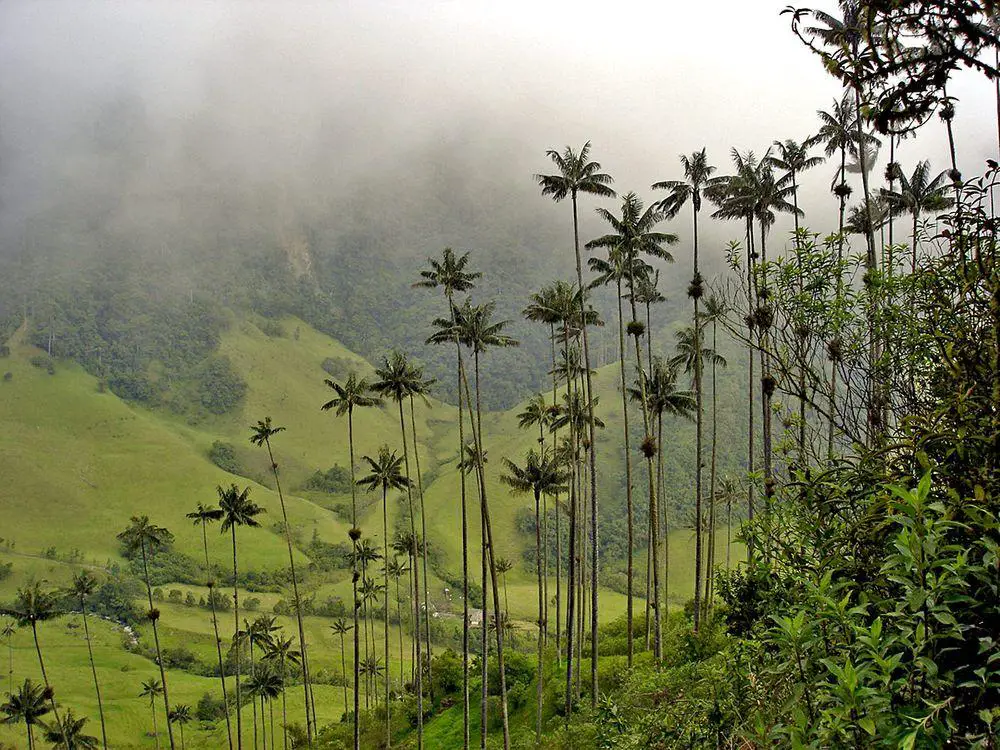
Archaeological wonders
Ciudad Perdida (Buritaca 200)
Quindío
One of the most interesting Pre-Columbian sites in South America is the ruins of a mountain-top city that flourished around 800 AD. The city was built on 169 terraces that were cut into the mountainside. Ruins contain numerous amazing artifacts such as a possible map of surroundings cut in stone.
San Agustín
Huila
An impressive group of megaliths from AD 100 – 1200, some up to 4 meters tall. This is the largest group of megalithic sculptures in South America. The numerous large-sized sculptures have a high art value. This area is 78 ha in size and includes such sites as Las Mesitas with artificial mounds, terraces, and tombs.
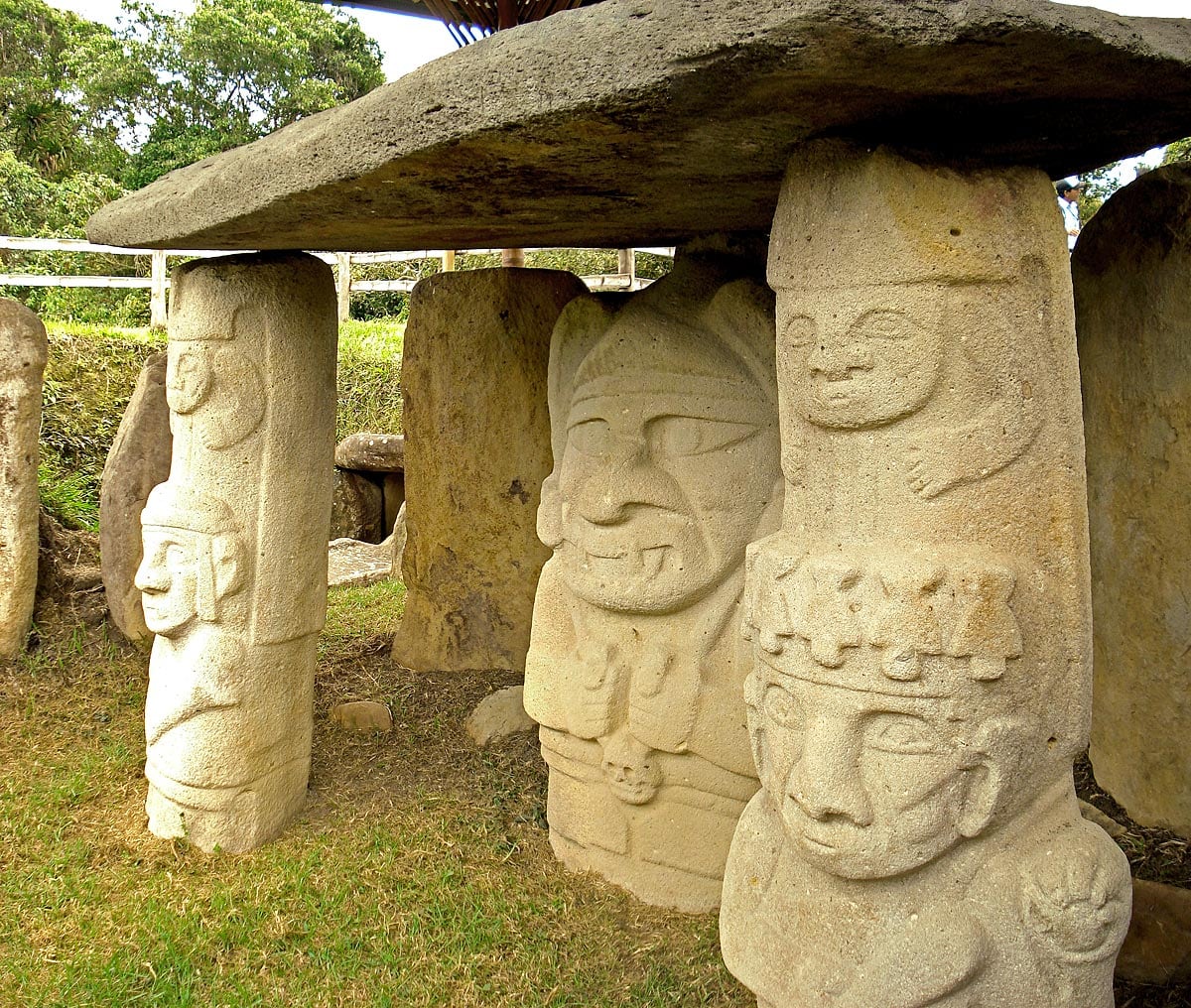
La Lindosa Guaviare rock art
Guaviare
Thousands of prehistoric cave shelters in Serrania La Lindosa contain the most extensive galleries of rock paintings in South America. At least 12 500 years old. Discovered in 2018.
Alto de las Piedras
Huila
An archaeological site, a part of the San Agustín monument. The site contains stone sculptures and remnants of different structures from AD 100 – 1200. Contains such valuable stone statues as Doble Yo, El Tablón, La Chaquira, and others.
Chiribiquete petroglyphs in Cañón del Tigre and elsewhere in Serrania de Chiribiquete
Caquetá
36 shelters with prehistoric paintings in a pristine, spectacular area, drawn here at least 3600 BC. Shelters were inhabited until roughly 1400 AD. Rock art in Serrania de Chiribiquete is widespread, this area is one of the richest in South America in this respect.
Architecture wonders
Las Lajas Sanctuary
Nariño
Beautiful Neo-Gothic cathedral that was constructed in 1916 – 1949. Unusual due to its location over a deep gorge where the apparition of the Virgin Mary happened.
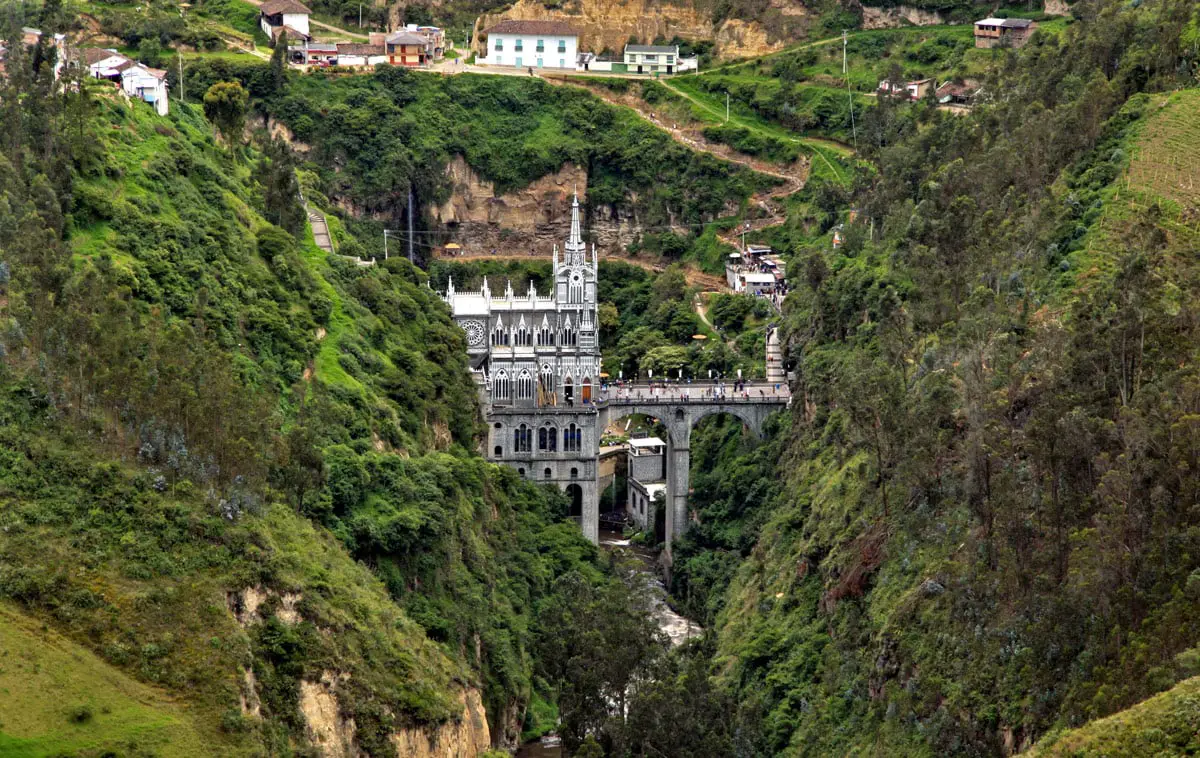
Gold Museum
Bogotá Capital District
The biggest collection of pre-Hispanic gold work in the world, one of the most spectacular archaeological museums in the world. Contains the unique Muisca raft – a golden raft showing the El Dorado ceremony.
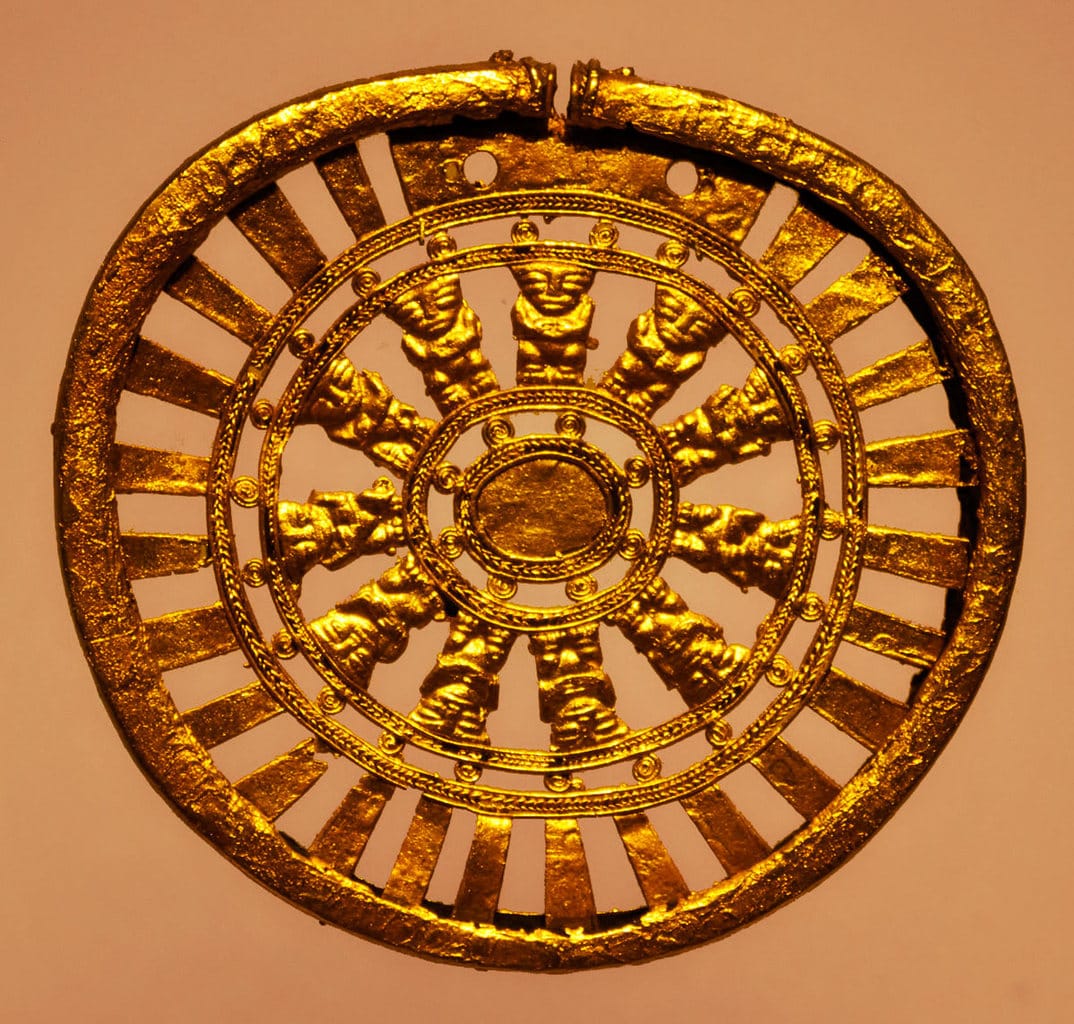
Santa Cruz de Mompox
Bolívar
This historical town was established in 1537. The town was rich thanks to the nearby goldmines and as a result here in the 17th – 18th was been built numerous ornate houses. The houses show both Spanish and local influences and have been well-preserved. A characteristic feature is the use of wrought, decorative iron.
Cartagena Old City with fortifications
Bolívar
Cartagena was one of the most important cities in the Caribbean area in the 16th – early 19th century and a huge number of ornate, beautiful structures were built during this time. The historical center is located on a scenic peninsula. The fortifications of Cartagena are the most extensive fortifications from the 16th – 18th century in the Americas. Especially impressive is Castillo San Felipe de Barajas (1639 – 1657) – the largest Spanish-built fort in the Americas.
Santa Cruz del Islote
Bolívar
The area of this island is a mere 1 ha but it has 1247 inhabitants thus making it the most densely inhabited island in the world.
Santa Bárbara Church in Mompox
Bolívar
Beautiful church in Late Renaissance style, constructed in 1613. Next to the church stands a round bell tower in Baroque style.
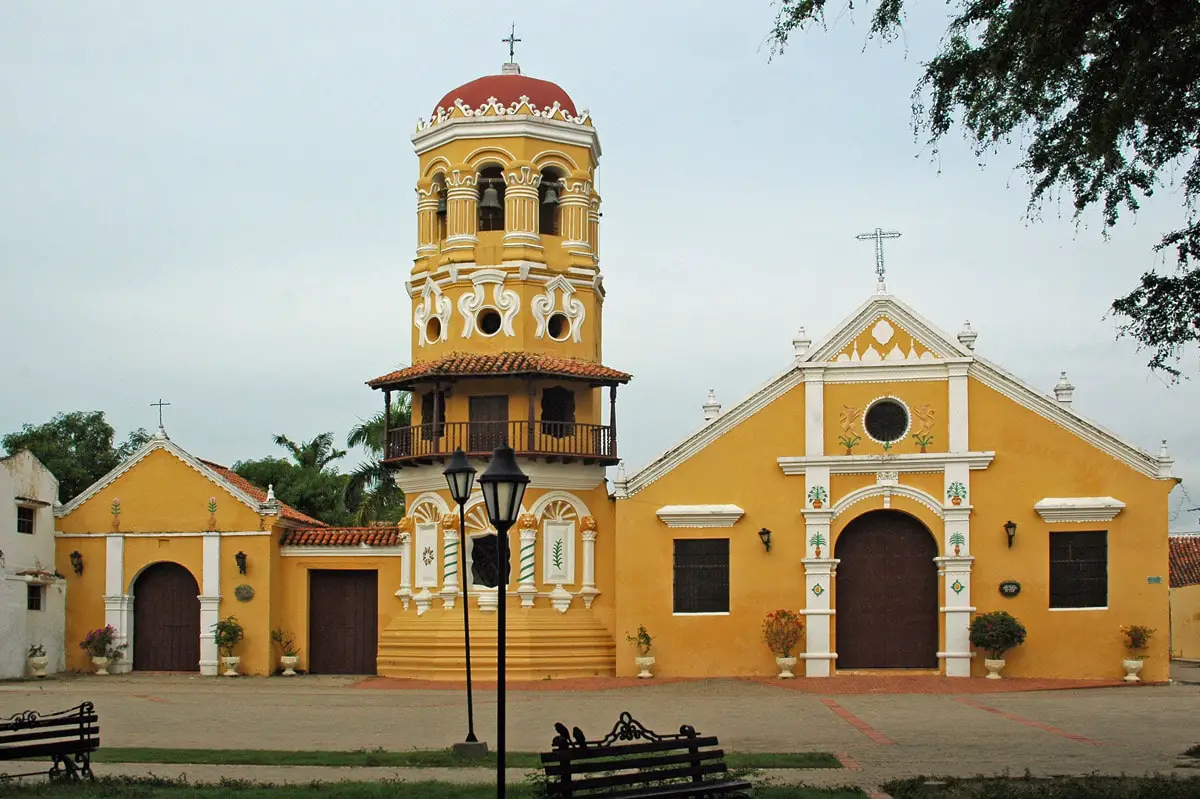
Salt Cathedral of Zipaquirá
Cundinamarca
This church was built 200 m underground in a salt mine. The church was built in 1991 – 1995 and has beautiful architecture.
San Francisco Church in Mompox
Bolívar
A historical church with an unusual facade design, constructed in 1564 and rebuilt in later times.
San Francisco Church in Popayán
Cauca
One of the most beautiful Baroque-style structures in Colombia. Originally it was constructed in the 16th century and rebuilt in 1765 – 1788.
 Recommended books
Recommended books
47 Amazing Things to See and Do in Colombia
Detailed guides are great. But when you’re putting together your rough itinerary, you don’t always need up-to-the-minute peso prices, opening hours on public holidays, and the nicknames of all the local bus drivers. Sometimes you just want a quick heads up, so you know what’s what.
The Rough Guide to Colombia
Brand new for 2015, the Rough Guide to Colombia provides in-depth, expert coverage of one of South America’s fastest-growing destinations. Get the lowdown on street art in Bogota and colonial architecture in Cartagena, stay on a working finca in the emerald green hills of the Zona Cafetera, or hike through the pristine jungle to reach a remote white sand beach in Tayrona National Park.

